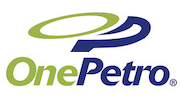Get Informed
Our Publications
SPE publications cover all aspects of the oil and gas industry and are considered the leading source of industry technical applications, issues and discoveries.
Magazines
 Our three magazines offer a variety of content for all our members, whether young professionals or industry experts.
Browse our magazines
Our three magazines offer a variety of content for all our members, whether young professionals or industry experts.
Browse our magazines
Peer-Reviewed Journal
 The SPE Journal features papers selected and evaluated by industry experts to represent the best of current and emerging technologies.
The SPE Journal features papers selected and evaluated by industry experts to represent the best of current and emerging technologies.
Technical Papers
 Technical content from SPE's meetings and journals is also available in OnePetro, a multi-society library that covers a broad range of E&P literature.
Technical content from SPE's meetings and journals is also available in OnePetro, a multi-society library that covers a broad range of E&P literature.
Our Events
From conferences, symposia, and forums to workshops and training courses, SPE events offer technical knowledge and information you can use on the job.
- Events Calendar: to view upcoming conferences, symposia, forums and workshops from around the world, as well as virtual events you can log into from anywhere!
- Training Course Calendar: to view upcoming Training Courses as well as access the complete catalog of training courses available from SPE
- Webinar Calendar: to view upcoming webinars and watch past events on-demand. You can also access other online content such as Distinguished Lecturers and Petrotalks
Conferences
Can be focused on a specific topic or have a broad technical scope. Conferences typically offer special sessions – luncheons, panel discussions, keynotes – as well as technical sessions. In many cases conferences also feature an exhibition.
Forums
Forums are unique, invitation-only events that bring together top technologists, innovators and managers to address a specific industry challenge. The objective is to stimulate thought, accelerate innovation, and inspire the development of new technologies.
Training Courses
Our training courses are lecture-based sessions that allow you to build your knowledge of a given topic or focus area. They are held in conjunction with conferences, through local sections, or at the SPE training centers in Houston, Midland and Calgary.
Webinars
Our webinars allow you to deepen your understanding about a topic of interest without leaving your desk. Join our industry experts as they explore solutions to real problems and discuss trending topics.
Workshops
Workshops are topic-specific, focused events that are smaller in scope than conferences. Workshops maximize the exchange of ideas among attendees and presenters through brief technical presentations followed by extended Q&A periods.
Other Ways to Get Informed
SPE Competency Management Tool
Take control of your professional development. Our web-based resource enables E&P professionals to plan their career advancement in two steps:
Step 1: Assessment
Test capabilities against job competency models to identify knowledge gaps relative to industry standards.
Step 2: Individual Learning Plan
View customized recommendations to fill gaps, including training, papers and other resources.
Petroleum Professional Certification Program
This program offers members an opportunity to obtain a recognized credential as a petroleum industry professional. It offers a measurable evaluation of members' technical knowledge and skills, while conferring recognition of their compliance with international standards for petroleum professionals as established by SPE. To become certified, applicants must have:
- Verified education
- Industry experience
- Committment to professional ethics
- Successfully passed the certification exam
PetroWiki
PetroWiki is the upstream oil and gas industry’s first fully-moderated wiki. Make PetroWiki your source for:
Information - Find technically sound information moderated by industry experts.
Resources - Access basic engineering calculations, the Petroleum Engineering Handbook, links to OnePetro articles, and more.
Expertise - SPE professional members can contribute to PetroWiki.
Distinguished Lecturer Program
Each year, 35 to 40 Distinguished Lecturers – known experts in their fields – are chosen to travel across the world and present technical information to SPE sections. DLs are nominated by their peers, and then reviewed and selected by the DL committee. SPE sections have as many as three presentations each year.
Browse the distinguished lecturer schedule
View the online distinguished lecturer schedule
Technical Sections
SPE Technical Sections are communities of SPE members who come together to share ideas, promote competence, and develop projects related to their areas of technical interest. They meet online for the most part, but are encouraged to hold face-to-face meetings at least once per year.
